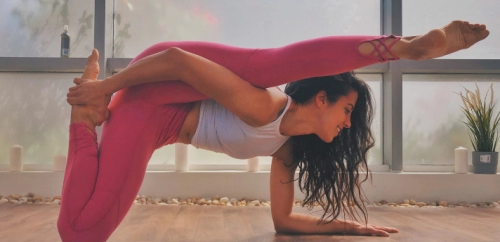




Divuni Mindfulness
A problem many people face when first starting out with meditation is that they find out just how busy and loud their minds are.
It's a common problem that not only beginners face, but also more advanced and experienced meditators.
Those that are more experienced may just know how to better deal with these situations and how to solve them and quiet their minds quicker than those that are just starting out.
One way to quiet your mind and to stop thoughts from coming while you meditate is to first try to understand what those thoughts are, why they are appearing, and to not fight them.
It's when we try to fight the thoughts that the stream of thoughts become uncontrollable, louder, and more intense.
Instead of fighting them and trying to forcefully expel them, leave them alone. See what those thoughts are and where they lead you to. Allow them to be there, present with you in that moment, and when the time is right, calmly release them and let them go.
Though this may take time to get better at, trying to force your mind to be quiet will probably not work and may just result in you not being able to meditate and quiet your mind.
Don't get angry, upset, or irritated at the thoughts. If they are showing up, it may be for a reason. These thoughts may be what is stressing you out, they may be what is causing your depression, anxiety, or other negative thoughts and emotions. Getting angry or upset will do no good. Instead, accept the situation, and allow it to be until you are able to calmly release those thoughts.
If new thoughts appear, that is ok. Repeat the process, allow them to be. Learn from them, see where they take you, and when you are ready, release them.
As you progress, you will be able to do this much easier and quicker, and eventually will be able to start your meditations with a clearer mind, free from the stream of thoughts. It just takes time, like any other practice.
Expecting to start a meditation practice and not have thoughts is a fair way to burn out from practicing at all, since this is just usually not how meditation works.
Throughout our lives, we have allowed our minds to run wild, without control. Being quiet, for most people, is just not something they have trained themselves to do. Meditation and quieting the mind are skills that need to be developed, and for many, they go against who they have been their whole life, as their whole life was spent without controlling their minds and thoughts.
One reason for this back pain may be due to weak back muscles that are involved in sitting straight.
When people first start meditation practices, they may not be used to sitting up straight for long periods of time. Even sitting for short periods of time may cause slight back pain.
Once you progress with your meditation practice, the muscles involved in sitting with a straight back will get stronger, resulting in the ability to sit for longer in meditation without suffering from the back pain and discomfort.
Another positive side effect is that you may have improved posture in your day-to-day life as well. The reason for this is that when you meditate, it's important to sit with a straight back, and not to be hunched. You are actively and mindfully training and adjusting your posture and making sure you are sitting with a straight back. This posture training does not benefit only your meditation sessions, but your daily life as well. You will start to notice that you are being more mindful of your posture. As you progress, you will start to have better posture without even trying or forcing it, it will just be natural.
One way to help strengthen your back muscles to prevent the pain and discomfort is to include some physical activities in to your schedule, such as weight training or yoga. If your goal is just to be able to sit longer in meditation without experiencing the back pain, you won't need to lift very heavy weights or go to any extremes. Just being physically active and strengthening the back and surrounding muscles should be enough.
Don't skip your core!
Your core muscles are another important element in having good posture, this goes for sitting and meditating as well. Try to include some core exercises to help ensure that you are strengthening the muscles involved in keeping a good posture. This can really help make the pain and discomfort go away.








